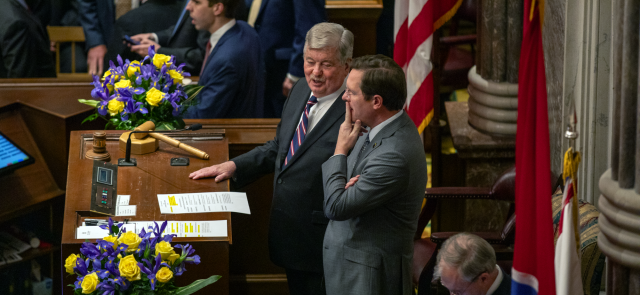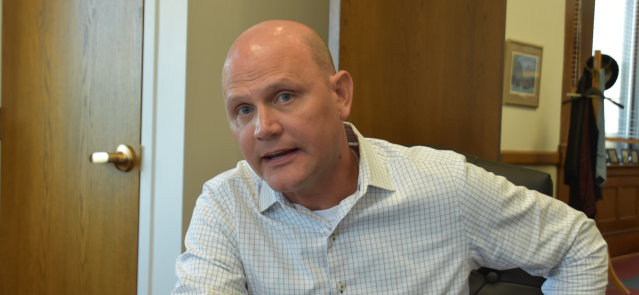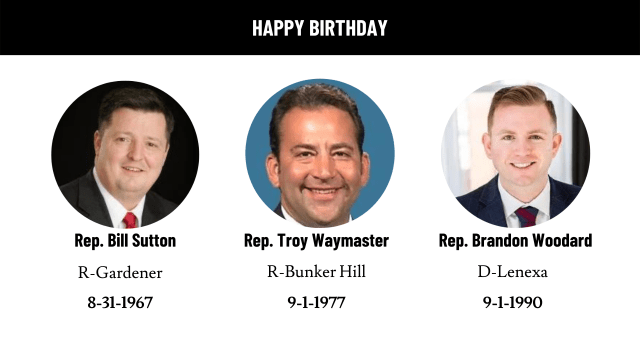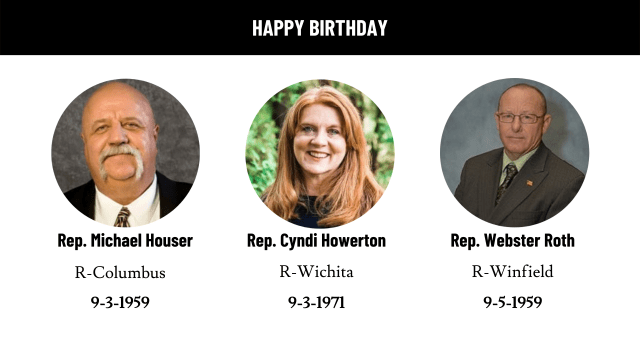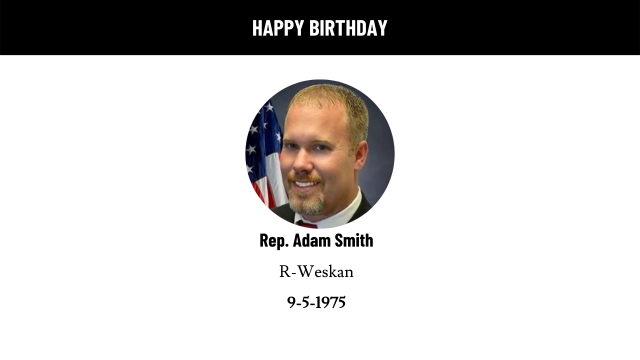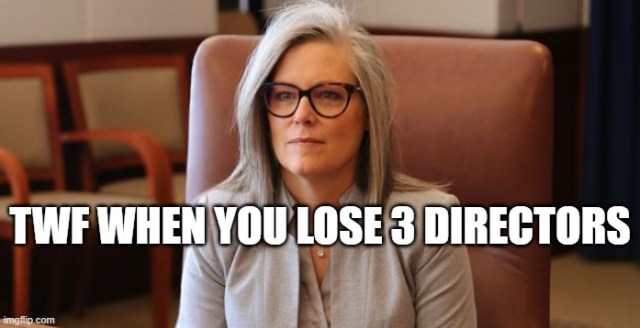Budget Needs
Chantal Brown, Education NC, 8/30/24
After being left without a new budget for this fiscal year, different state agencies highlighted the need for evidence-based decision-making and flexibility at a panel last week hosted by the N.C. Office of Strategic Partnerships.
Panelists at the “Monthly Connect” discussed where state spending and the budget currently stand, and how their different departments adapt to the changes and lack thereof.
“Evidence and data is very important to our department, to state government as a whole, because it tells you what programs are working. It tells you what programs are not working, tells you where you need to probably shift your financial abilities and thoughts and outcomes over based off those programs that may not be working, that we need to readjust,” Sharon Marsalis, budget director for the Department of Public Safety, said. “So (being) evidence-based gives us an ideal roadmap of how we need to build our budget, and how we need to move forward in the future.”
North Carolina operates in two-year legislative sessions. During odd-numbered years, North Carolina’s General Assembly gathers during what is known as the long session. During this time, they create a budget that applies to the next two fiscal years. The fiscal year runs from July 1 to the following June 30. Adjustments are often made during the second year to what has been agreed on.
A lot of decisions that go into forming a budget are informed by the General Assembly’s Fiscal Research Division. In the fiscal research division, they serve as support staff to legislators. If a legislator asked questions related to funding, how programs are administered, or how the revenues are raised, the fiscal research division provides the information on an as-needed basis. The memos, e-mails, and analyses produced in their work are bound by legislative confidentiality — meaning it is up to the legislator if they want to share them with others or not. They also do educational background briefings.
Brian Matteson, director of the research division, said that the priorities legislators have and the information that is available do not always align. “Ultimately, where legislators want to go in terms of what their funding priorities are may not necessarily always align with the best available research,” Madison said. “And then oftentimes, too, there will be priorities where there isn’t much of a research base, or there isn’t really a gold standard, double-blind study that confirms for us the best way to go.”
The General Assembly passed a budget in late September of 2023. Kristin Walker, state budget director of the Office of State Budget and Management, said there is a long history of passing adjustments in the second year of a budget. However, this year, that hasn’t happened yet.
“We are operating off of a real budget, not a continuing resolution, but we don’t have those adjustments, and some of those adjustments are critically important to a few agencies,” Walker said. Walker said there are enrollment increases, funding for the Medicaid rebates, and some other areas where not having a new budget from the General Assembly is creating some hardship for state agencies.
When the state legislature passed their adjournment resolution, they said they would come back and address the budget in November, but panelists said they are not sure if that will happen. Both the House and Senate presented bills with budget adjustments during the short session, but they were not able to reach an agreement.
“Even if the General Assembly and/or the governor aren’t interested in reconsidering the policies that they put in place at the beginning of a fiscal biennium, then usually there are demographic shifts or just changes within the existing program structure that, try as we might, are projections for how many citizens will be participating in the Medicaid program or will have attended a community college class,” Madison said. “Those just are destined not to be 100% accurate.” [Source]
GOP Ticket
Gary D. Robertson, The Associated Press, 8/31/24
North Carolina conservatives who gathered recently over coffee and pancakes at the Olympic Family Restaurant to support Republican Lt. Gov. Mark Robinson knew about some of the controversial things he has said previously, but they were inclined to be forgiving.
“He’s a good speaker. He made some mistakes in his past,” said Allan Jones, a 59-year-old truck driver, at the campaign event near his home in Colfax. “Haven’t we all? Did we learn from them? Let’s go forward.”
Robinson, a favorite of former President Donald Trump, is the party’s nominee for governor in the November election. He is looking to succeed term-limited Democrat Roy Cooper in a state that has voted for Trump twice and has backed Republicans for the presidency all but once since 1980. Robinson is popular for his working-class history and a blunt-speaking style that at times resembles Trump’s. But Robinson also has a history of inflammatory comments that his opponent, Democratic Attorney General Josh Stein, has said makes him too extreme to lead North Carolina. It raises the prospect that campaign struggles for Robinson could hurt Trump’s chances to win a state he cannot afford to lose to Democrat Kamala Harris.
On a Facebook post in 2019, Robinson said abortion in America was about “killing the child because you weren’t responsible enough to keep your skirt down.” In a 2021 speech in a church, he used the word “filth” when discussing gay and transgender people.
Democrats led by Cooper, a top surrogate for Harris, have tried to make the case that North Carolina’s 16 electoral votes are ripe to win. Trump’s 1.3 percentage point victory in North Carolina over Democrat Joe Biden in 2020 was the narrowest for Trump. Cooper argues that Republican candidates with views closely linked to Trump — Robinson and state schools superintendent candidate Michele Morrow among them — could turn out people who otherwise would not have voted for Democrats.
Stein, after a campaign event last month at Wilber’s Barbecue in Goldsboro, said he did not know whether such views by those candidates would affect the presidential race but he thought they could be on voters’ minds. “These are not normal people or candidates, and I think it’s going to have a big impact on the way voters look at the Democratic Party in our state and the Republican Party in this light,” he said.
There are no public signs that Trump is distancing himself from Robinson, who appeared on the stage for Trump’s recent rallies in the state.
Stein had a lead over Robinson in two polls of North Carolina voters conducted in August. Robinson’s campaign released a memo from a pollster arguing that Robinson has been faring better than the two previous GOP nominees for governor.
“Reverse coattails or other Democratic fever dreams are not real, particularly in a presidential election cycle,” state Republican Party spokesperson Matt Mercer said. “What is real is the electoral strength of Donald J. Trump in North Carolina.”
Stein and his allies have been successful so far in defining Robinson in the closely divided state. Robinson’s views on abortion have been front and center, and Democrats have used a stockpile of footage from Robinson’s social media posts in their television commercials and videos.
Data from AdImpact, which monitors campaign spending, show that Stein has outspent Robinson by more than a 3-to-1 margin since the March primaries, an edge that would widen based on spots reserved between now and the fall general election.
“Mark Robinson is the chief spokesperson for the Josh Stein attack campaign,” said Paul Shumaker, a veteran GOP consultant whose clients included a candidate who lost to Robinson in the primary.
Robinson also has received bad press for his family’s businesses, including a nonprofit run by his wife that state regulators found had numerous problems in administering a child nutrition program.
Robinson says his past words have been twisted by others and he blames the “weaponization” of state government for the attack on his wife’s business. He remains optimistic entering the final two months of the race.
“Certainly when you look at a poll, you may get dismayed by some numbers,” Robinson told reporters outside the Olympic restaurant. “But we’re not looking at numbers, we’re looking at people and we’re going after votes. And we know we can still win this race.”
Shumaker, the Republican consultant, said polling shows Stein is performing better than Robinson among independent voters. One unaffiliated voter, Richard Morgan, 68, attended the Colfax event and votes Republican. He said he has told Robinson that he needs to sharpen his abortion commercial to highlight his support for women. As for Robinson’s past controversial comments, Morgan said he gives Robinson “the benefit of the doubt that he’s a changed man because everybody else does for other candidates” who say things they regret later.
Susie Hess, 64, a retired social worker who attended the Stein event, said the things she has heard that Robinson has said are “horrible.” She said she has voted for Republicans before and believes some of them hold the same values she does, but that does not seem to be the case this year. “Because a lot of them are falling in line with Trump,” Hess said, “they’re kind of giving up on their values.” [Source]
Trump Campaign
Danielle Battaglia, McClatchy, 8/30/24
Former President Donald Trump is returning to Charlotte next week to address the Fraternal Order of Police’s National Board of Trustees. Patrick Yoes, the organization’s national president, announced Friday afternoon that Trump accepted an invitation to address the board. “President Trump led our nation admirably through some very tough times,” Yoes said. “He provided our nation with strong, effective leadership during his first term, and now that he is seeking election to a second term, we think it’s important to have him join us to talk about all of the issues facing our profession.”
Next week’s visit marks Trump’s fourth visit to North Carolina since President Joe Biden ended his reelection campaign on July 21. Since then, Vice President Kamala Harris became the Democrats’ presidential nominee, tightened the race in North Carolina against Trump, often leading in the polls, and has turned the state from one that analysts said leaned Republican to one that is seen as a toss-up.
On Thursday, during Minnesota Gov. Tim Walz’s first campaign visit to the Tar Heel State, Harris’ running mate said Trump can’t win back the White House if he doesn’t win North Carolina.
Trump had largely ignored the state prior to Harris’ run. He had made a few campaign stops throughout the year, but that paled in comparison to the Biden-Harris campaign, who sent the candidates and their surrogates on a near-weekly basis. Now, Trump has visited Charlotte, Asheville and Asheboro in a matter of weeks.
“We are eager to see President Trump again after meeting with him at Mar-A-Lago earlier this year,” Yoes said. “He was a great friend to the FOP while President and we look forward to hearing from him — and having him hear from us — on the issues important to the rank-and-file officers the FOP represents.” The organization has a seven-member executive board and a national trustee from each of its 46 state lodges. It also includes members from several law enforcement agencies in Washington, including Capitol Police.
Trump is facing charges out of Washington for obstructing Congress’ certification of Biden as president on Jan. 6, 2021. A riot at the U.S. Capitol ensued after Trump told his supporters to march to the Capitol. The insurrection left 174 police officers injured, and left five dead, four by suicide.
FOP endorsed Trump in 2020, but has not yet offered him an endorsement in the 2024 race. A decision on who FOP plans to endorse is expected on Sept. 6 during their meetings. The fall meeting is scheduled from Sept. 4-8. It’s not clear which day Trump plans to attend. [Source]
Pollution Classification
Adam Wagner, The News & Observer, 8/30/24
This thermal oxidizer is key to Chermours’ efforts to control forever chemical emissions at its Fayetteville Works plant. The N.C. Department of Environmental Quality is asking the EPA to classify four forever chemicals as hazardous air pollutants. North Carolina and two other states are asking the U.S. Environmental Protection Agency to regulate air emissions of four forever chemicals.
On Thursday, the states sent the EPA a petition asking it to classify GenX, PFNA, PFOA and PFOS as hazardous air pollutants.
“Adding these forever chemicals to the list of regulated pollutants addresses a gap in our regulatory authority and makes it possible to tackle a critical part of the PFAS life cycle: air emissions,” N.C. Department of Environmental Quality Secretary Elizabeth Biser said in a written statement.
DEQ was joined by environmental agencies from New Jersey and New Mexico. The states said air regulations are needed to control industrial emissions of PFAS. But they also pointed to the incineration associated with new federal rules requiring removal of forever chemicals from drinking water and polluted sites.
“Without EPA acting on this petition, remediating our land and waters may result in air dispersion of these chemicals into communities or other geographic areas of our environment,” the petition said. [Source]
Pipeline Construction
Santiago Ochoa, WFDD, 8/30/24
In Lexington, about 20 people attended a meeting hosted by 7 Directions of Service, a nonprofit with a history of fighting pipeline construction in the Piedmont.
The organization is concerned about the risks posed by Williams Companies’ Transcontinental Pipeline Southeast Supply Enhancement Project. The Fortune 500 company is proposing the construction of a 28.5-mile-long pipeline running through Rockingham, Guilford, Forsyth and Davidson counties.
Nancy Thomas, a Wallburg resident in attendance, recently found out she lives within the project’s buffer zone, or the area that could be affected by the pipeline’s construction.”I was like, what does that mean and what can we really do about this? How is it gonna affect the environment, the neighborhood, the property values,” Thomas said.
Exposure to even small amounts of methane coming out of hard-to-detect leaks can lead to nausea, fatigue, respiratory issues and even central nervous system damage.
A Williams spokesperson said the company actively engages with landowners in efforts to reduce disturbances and minimize environmental impact. [Source]
Tourism Numbers
Jason deBruyn, WUNC, 8/30/24
Last month, Gov. Roy Cooper’s office heralded big increases in tourism spending. But figures deeper in the report show that employment in tourism sectors still lagged behind.
Tourism revenue topped $35 billion in 2023, a record high and 22% higher than in 2019. Income from that spending, or what shops and hotels made in profit, also hit a record high. But employment was still 6% below levels of 2019.
Wit Tuttell, director of Visit North Carolina, said that disparity comes from a strong labor market. Throughout 2023, the unemployment rate in North Carolina never went higher than 3.6%. As workers find stable jobs they like, it makes it harder for seasonal employers to find help. Tuttell noted that while total employment hadn’t fully rebounded, total payroll did increase.
“It means that the people who are employed in the industry are making more money now,” he said. “That’s a good sign I think, and that’s a sign of part what’s happening coming out of the pandemic. It’s been harder to get the workforce.”
“The bottom line is that the industry is still in a state of not having enough staff to fill all our vacancies,” Tuttell said. The NC Restaurant & Lodging Association has been running a campaign to attract workers into the industry. A jobs tracker on the site shows more than 3,000 vacancies, including more than 2,000 entry-level vacancies. [Source]
Hostage Death
WTVD News, 9/02/24
North Carolina political leaders are reacting to the news that a hostage who was an American citizen was found dead in Gaza. Gov. Roy Cooper shared his condolences for Hersh Goldberg-Polin and his family in a post Monday on X, saying in part “I met Hersh’s parents and they have been courageous in ways no parents should ever have to be. I’m praying for them and the other hostage families.”
Sen. Ted Budd, R-NC, who has been outspoken about the hostage situation in the Middle East, reacted Sunday. “We are devastated by news of Hersh Goldberg-Polin’s death. Having gotten to know Hersh’s parents, Jon and Rachel, over the last agonizing 330 days, we cannot imagine the pain and grief they are experiencing. We are praying for God to comfort them and all of Hersh’s loved ones,” Budd said in a statement. Budd has been speaking out about the hostage situation in Gaza since Oct. 25 when he announced his intention “to hold all humanitarian aid to Gaza until each and every American hostage is home and is safe.” Budd visited the Middle East in January where he spoke with the wife of a North Carolina man who was being held hostage in Gaza.
A Hamas-issued video in April showing Goldberg-Polin clearly speaking under duress sparked new protests in Israel urging the government to do more to secure his and others’ freedom. The news of the six hostages’ deaths sparked new protests in Israel. [Source]
Nurses Strike
Joel Burgess, Asheville Citizen Times, 9/02/24
A strike vote by nurses at Mission Hospital has been delayed and extended through the weekend after union leaders said many who wanted to vote have not been able to because of short staffing, which they say is a continuing problem at the hospital.
The vote, if it gains a majority of the 1,600 union and non-union nurses, would give union leaders the option to call a strike. It signals an escalation in tensions between staff and management. Should nurses strike, federal law requires they give 10 days notice. The hospital has been advertising for strike nurses to fill in.
Nursing staff is at odds with Mission’s owner, HCA Healthcare, over issues such as pay, staffing numbers and improving recruitment and retention as well as guaranteed bathroom and meal breaks. Voting started Aug. 25 and was to end Aug. 29, taking place in the hospital cafeteria.\
But Hannah Drummond, a nurse and union leader, told the Citizen Times on Aug. 30 “many who have been enthusiastic about it have not been able to vote.”
“They don’t even eat while they are at work, so they haven’t been able to pop in during the 11 a.m. to 2 p.m. session,” said Drummond, an 11-year nurse now working in heart catheterization recovery. Drummond said the best information she could give about the new timeframe was “through the weekend.” Monday, Sept. 2, is the Labor Day holiday.
Nurses unionized in 2020 after the nonprofit Mission was bought for $1.5 billion by HCA, a for-profit organization and the largest owner of hospitals in the country. The nurses have worked without a contract since their first agreement with HCA expired on July 2. Negotiations, including a last meeting between the parties on Aug. 27, have not yielded a deal.
“We make a little bit of progress every single session we go to, but we haven’t gotten serious offers that we are comfortable with accepting from the hospital yet on recruiting and retaining nurses. And we’re getting nothing from them regarding improving staffing,” she said.
Staffing issues in two particular departments, emergency and oncology, are the subject a lawsuit brought against HCA by state Attorney General Josh Stein.
HCA spokesperson Nancy Lindell, responded to a query by the Citizen Times, saying HCA had made a “very significant wage proposal” and would continue to “bargain in good faith.” The process, she said, had led to agreements on parking, uniforms and technology, as well as significant progress on health benefits, safety and education support. “We hope that we can conclude these negotiations and move forward together in caring for patients,” Lindell said. [Source]
Handgun Permits
Woody Cain, WFAE, 8/30/24
Mecklenburg County Sheriff Garry McFadden says a settlement has been reached in a lawsuit over the processing time for county handgun permits. The lawsuit was filed in Nov. 2022, with seven plaintiffs alleging a provision in the concealed handgun permit law was unconstitutional and violated both the 2nd and 14th amendments. They also said McFadden was using the law’s mental health provision to drag out the application process.
In a press release Thursday, the sheriff’s office says it will pay $5,000 for plaintiff’s legal fees but no damages and will ask each applicant if they have sought mental health treatment, require the applicant to list the provider, then issue or deny the permit within 45 days. [Source]
Farm Relief
WTVD, 9/01/24
US Department of Agriculture Under Secretary Robert Bonnie is getting a first-hand look at how North Carolina farmers are dealing with extreme weather. As you may know, it’s been a tough year for farmers after having periods of extreme heat leading to drought and then heavy flooding from Tropical Storm Debby.
Earlier this year, nearly every county in the state was put in a high classification for drought. That’s something we’ve only seen twice since 2000. The North Carolina Farm Bureau posted a video on social media. Bonnie talked with Wilson County farmers and Farm Service Agency (FSA) leaders to talk about relief efforts.
“Unfortunately North Carolina farmers have been hit with gut punches over the last several months,” Bonnie said in the video. “Drought, heavy rain, and then of course a hurricane.”
In the video, Pender Sharp, a Wilson County farm, said they’ve lost about 88 acres of sweet corn — about $300,000 worth. They have also lost a significant amount of tobacco just from the rain and wind. “But, the real damage is coming now,” he said. “With the water that’s still on the ground rotting the roots of the tobacco…it could easily cut our volume in half, which would cut our income in half.”
Leaders said they’re looking at how the state and federal government can help these farmers.
“Congress needs to act,” Bonnie said in the NC Farm Bureau’s social media video. “We need a farm bill and that’ll help us respond to situations like this. I think it gets lost sometimes how important agriculture is to the state of North Carolina — a critical part of the state’s economy.” [Source]
Chancellor Housing
Ray Gronberg, Business NC, 8/30/24
East Carolina University is once again on the market for a house for its chancellor. Back in 2018, the ECU Foundation through a shell company spent $1.3 million to buy an 8,243-square-foot home just south of Greenville for the chancellor’s use.
Apparently, this has proven unsatisfactory. WCTI and the Greenville Reflector report that the plan now is to install Chancellor Philip Rogers and his family in temporary housing.
The TV station says the foundation is leasing “a traditional three-bedroom house” in Winterville, a Pitt County town south of Greenville. The media outlets say the 2018 purchase, which is in the Star Hill Farms neighborhood near Greenville Country Club, needs repair.
The foundation later added to the Kariblue Lane property, spending $1 million in 2022 to buy two adjacent, empty lots. That enables more parking for university events. WCTI cites ECU trustees Chairman Jason Poole as saying it’s a good time to decide whether a smaller house would better meet the university’s needs and culture. The idea is to lease the Winterville house for a year, sell the current one and “find a new official residence” for the chancellor, WCTI says.
A controversy preceded the 2018 purchase. Up to then, East Carolina’s chancellors lived in the Dail House, a 1930 two-story house on East Fifth Street across from the university’s main quad. It was deemed lacking for university functions, and the property also needed renovation.
Former Chancellor Steve Ballard told the Reflector back in 2018 that the location suffered from a lack of privacy and a proximity to downtown, where shootings and bar traffic raised security concerns.
Critics including Harry Smith, an ECU grad who was on the UNC System’s Board of Governors, thought the acquisition was too lavish for an institution that’s supposed to be a beacon for Down East’s Tier 1 communities. The foundation bought the home from Greenville dentist Rick Webb, who WITN says was a former board member of the group. [Source]
Sheriff Lawsuit
Lexi Solomon, The News & Observer, 8/30/24
A federal judge ruled Friday that two former Wake County deputies will receive $500,000 each after former Sheriff Gerald Baker retaliated against the pair for reporting another officer’s alleged homophobic and racist remarks.
Baker, who was sheriff from 2018 to 2022, was sued in federal court by former deputies Steven Williamson and Alvis Speight in 2021. They accused Baker of firing them after they had reported a lieutenant’s “homophobic and racially discriminatory” remarks about gay people and Muslims during a training session in May 2017, according to the lawsuit.
In a statement Thursday night, the Wake County Sheriff’s Office acknowledged “the recent decision regarding a lawsuit involving personnel actions that occurred under a previous Sheriff’s administration.”
“Despite that outcome, the Wake County Sheriff’s Office under the leadership of Sheriff Willie Rowe remains dedicated to moving forward and upholding its commitment to the highest standards of integrity and service to the citizens of Wake County,” the statement released by Capt. D.R. Jones said. Baker’s lawyers said Friday they could not comment on the case.
Two years ago Baker settled another lawsuit out of court with Richard Johnson, a former deputy and chief of operations who had sued his former employer in 2020 for over $1 million, also alleging wrongful termination, The N&O previously reported. Johnson was discharged from the Sheriff’s Office in 2018, shortly after Baker defeated Harrison. He claimed he lost his job out of retaliation. The suit was settled for $99,999, a third of which went to Johnson’s legal fees.
Baker, who had called the suit a politically motivated act to disparage him, made “no admission of liability,” his then-spokesperson said in a statement. [Source]
Police Trainers
Joel Burgess, Asheville Citizen Times, 9/02/24
A state board has revoked instructor licenses of three of six police trainers who had their cases heard over a now-closed law enforcement training program at a Henderson County community college. Two of those facing revocation are Western North Carolina police chiefs and the other is a high-ranking officer. They are expected to appeal the Aug. 23 decisions by the N.C. Criminal Justice Education and Training Standards Commission.
In addition, the Justice Standards Commission suspended seven teaching certifications held by Director of Basic Law Enforcement Training for Blue Ridge Community College, David Hensley. Justice standards officials did not respond to an Aug. 30 question about the next steps in terms of Hensley’s licenses. His certification as a BLET director expired in May, the same month the program was shuttered.
The commission closed the program after finding “egregious” rule violations that included verbal and physical abuse of students with some suffering serious injuries.
Along with shutting down the program, the Justice Standards Commission suspended the teaching licenses of six instructors. Now, following the August hearings in Raleigh, three have had them restored: Polk County Sheriff’s Deputy Bryan Baldwin, Rutherford County Sheriff’s Deputy Joseph Ellis and Transylvania County Sheriff’s Capt. Chase Owen.
Owen, who spoke with the Citizen Times, was teaching patrol techniques, and while a student was injured, he said it was an accident that did not result from violations.
The most serious issues occurred in the specialized subject control arrest techniques classes, officials said. The three trainers who have now had their certifications revoked were teaching the SCAT section: Waynesville Police Chief David Adams, Columbus Police Chief Scott Hamby and Brevard Police Capt. Dan Godman.
The hearings are not public. [Source] |

